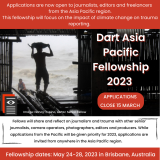
2023 Dart Asia Pacific Fellowship
The Dart Centre Asia Pacific Fellowship offers seasoned journalists, editors and freelancers in the Asia-Pacific region a special opportunity to improve coverage of tragic events.

The Dart Centre Asia Pacific Fellowship offers seasoned journalists, editors and freelancers in the Asia-Pacific region a special opportunity to improve coverage of tragic events.
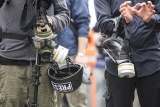
Journalists covering the recent earthquake in Turkey and war-ravaged Syria are witnessing widespread devastation and destruction, where tangled piles of metal and concrete are spread across a region beset by Syria’s 12-year civil war and refugee crisis.
Working in frigid temperatures and confronting escalating dangers, journalists are documenting history from the frontline of the disaster.
There are many other areas around the world, particularly in humanitarian crisis and conflict zones, where it is dangerous, even life-threatening, to practice journalism. The war in Ukraine provides another recent illustration of the vulnerability of journalists covering crisis situations. While it is impossible to mitigate all of the risks journalists on the frontline will be exposed to, there are certain things they can do to prepare for assignments in unstable and unpredictable environments.
This tip sheet from Dart Centre Asia Pacific provides ten tips for journalists and media workers that have been developed in conversation with experts who have responded to conflicts, disasters, and humanitarian disasters around the globe.
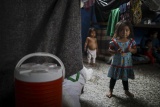
The Dart Center's virtual Fellowship for journalists in Latin America is focused on illuminating the effects of inequality on the growth, development and wellbeing of young children.
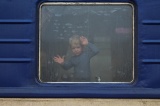
The Dart Center's third inaugural Early Childhood Reporting Fellowship aims to illuminate issues related to young children’s growth and development, and the well-being of their caregivers. Fellows will receive reporting stipends, coaching and monthly webinars to deepen knowledge on early childhood development and its intersection with the most pressing issues of today. The application deadline has passed.
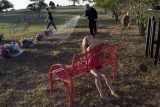
The Dart Center Ochberg Fellowship is a unique seminar program for senior and mid-career journalists who wish to deepen their knowledge of emotional trauma and psychological injury, and improve reporting on violence, conflict and tragedy.
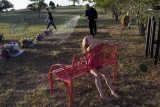
The Dart Center Ochberg Fellowship is a unique seminar program for senior and mid-career journalists who wish to deepen their knowledge of emotional trauma and psychological injury, and improve reporting on violence, conflict and tragedy.

First of all, I wanted to send my thoughts, prayers and condolences to all those affected by the tragic events in Itaewon. Please know that there are people like me around the world thinking of you and with you now in your time of deep sorrow.
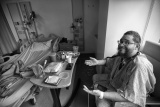
The Dart Awards for Excellence in Coverage of Trauma honor innovative, ethical and effective reporting of violence, trauma and tragedy across all media platforms. Judges will make two awards, each carrying a cash prize. The submission deadline has been extended. Entries must be received by February 9, 2023 at 5:00 pm EST.

Reporting a community tragedy can impact media workers, their managers, and their loved ones acutely. Those impacts can be potentially immediate, delayed or long-term. As each of these media workers – and their managers – digest the ramifications, personal and professional, of this tragedy, the Dart Centre Asia Pacific is offering some tips and resources that may help them report ethically and safely.

On December 1st, the 2022 Dart Awards honorees participated in a roundtable discussion about their craft, and approach to reporting complex stories.